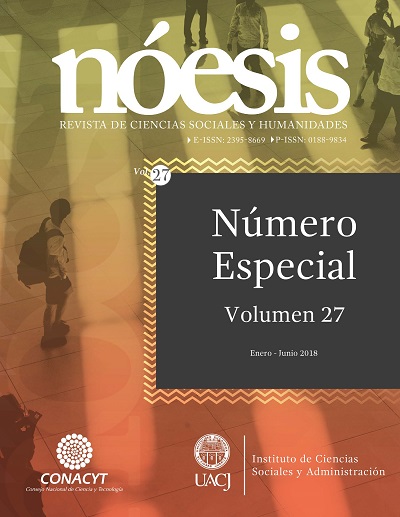Pessimist explanatory style and occupational self-efficacy: A bicultural quantitative analysis
The aim of this research study is to examine the relationship between pessimist explanatory style and occupational self-efficacy. Also, to assess whether the strength of this relationship varies between Mexico and the United States. A self-administered survey was applied in both countries (Mexico´s...
Saved in:
| Main Author: | |
|---|---|
| Format: | Artículo |
| Language: | spa |
| Published: |
Universidad Autónoma de Ciudad Juárez
2022
|
| Subjects: | |
| Online Access: | http://erevistas.uacj.mx/ojs/index.php/noesis/article/view/2251 |
| Tags: |
Add Tag
No Tags, Be the first to tag this record!
|
| Summary: | The aim of this research study is to examine the relationship between pessimist explanatory style and occupational self-efficacy. Also, to assess whether the strength of this relationship varies between Mexico and the United States. A self-administered survey was applied in both countries (Mexico´s n = 282, U.S.A.´s n = 275). Hierarchical linear regression and moderation analysis were employed to test the study hypotheses. The results indicate that pessimist explanatory style has a negative relationship with occupational self-efficacy and that this relationship is more pronounced in the United States than in its southwestern neighbor. On the whole, the findings suggest that unhealthy attributions for negative events have the power to inhibit enactive mastery and, therefore, the development of self-efficacy beliefs in the occupational domain. In addition, national culture could amplify such effect making it more negative in the United States than in Mexico. |
|---|---|
| ISSN: | 2395-8669 |
